 The James B. Moran Center for Youth Advocacy’s mission is to provide community-based legal, mental health, and restorative services for youth and families by using a holistic, healing-centered, client-driven approach. Their work strives to advance visions of a more just, racially equitable, and restorative society at the local, regional, and state levels. As Evanston’s primary legal services provider, the Moran Center relies on Connections for the Homeless and Joining Forces to provide critical housing and advocacy services for their clients, holistically addressing community members’ complex needs.
0 Comments
 Since community opinions can strongly influence new affordable housing efforts, Joining Forces’ YIMBY Committee is developing a campaign to educate community members and their stakeholders about the benefits of affordable housing. Our previous blog about the YIMBY Committee focused on how we can address common concerns about affordable housing (click here to read that post). This follow-up post focuses on how housing affordability benefits people and their communities.  Across the country, houses of worship are activating and joining what is becoming known as the YIGBY Movement (Yes, in God’s Back Yard). With approximately 100 churches within its boundaries, Evanston is ripe to join this movement. Joining Forces is working with Council Member Bobby Burns and the City’s Here to Stay Committee to make it happen.  The mission of the Supportive Housing Providers Association (SHPA) is to strengthen the supportive housing sector so that people have access to affordable housing and can survive and thrive in their community with services individually tailored to their needs. “Supportive Housing” refers to the combination of affordable housing with services for individuals and families who have been homeless and/or have special needs. 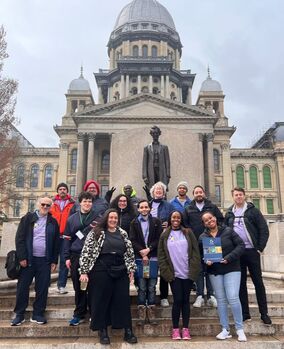 On April 3, Joining Forces hosted our second annual Lobby Day at the Illinois State Capitol in Springfield! Building on the success of last year’s event, we hosted 21 Connections for the Homeless staff, people with lived experience, and Joining Forces members to advocate for increased funding for homeless services in Illinois.  Center for Independent Futures (CIF) in Evanston is one of Joining Forces for Affordable Housing's founding community partners. CIF was started by two women who wanted their daughters with disabilities to live more independent lives. There weren’t many opportunities for people with intellectual and developmental disabilities to find housing that suited their needs or allowed them to live as independently as they wished before CIF. With an emphasis on equity and self-determination, these two founders created an organization that now empowers people with disabilities to lead independent and fulfilling lives, using a person-centered approach to provide different kinds of services. 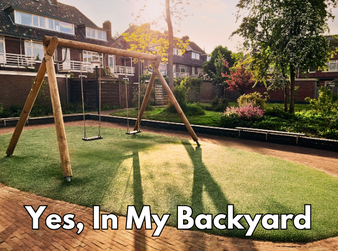 A primary objective of Joining Forces’ YIMBY (Yes, in My Backyard) Committee is to educate communities about the benefits of affordable housing and debunk misinformation that can serve as barriers to new affordability. Meeting this objective is important, because community opinions can make or break new affordable housing efforts. Joining Forces has been listening to and analyzing typical objections to affordable housing for years. Now, the YIMBY Committee is analyzing the most common concerns and finding that most objections fall into predictable categories. This is useful to us as advocates, because it can help us to acknowledge and respond to neighbors’ different concerns in different and constructive ways. 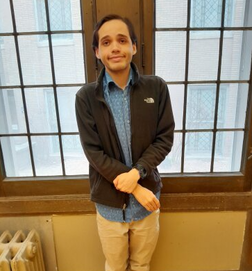 Isaiah Humphreys lobbied in Springfield with Joining Forces last year and plans to lobby with us again for Lobby Day 2024. He has noticed the nation’s state of homelessness and feels that he should do what he can to address it. This year, Joining Forces is asking to substantially increase the state budget for 2025 to support various homelessness services across Illinois, which is a great opportunity for Isaiah to make an impact. 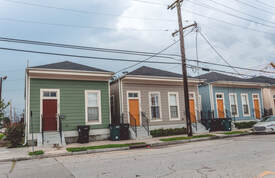 The mission of Connections for the Homeless is to serve and catalyze the community to end homelessness, one person at a time. The key to our success is housing, as is well documented in the 2022 book Homelessness Is a Housing Problem. As the book shows, we have no hope of solving the issue of homelessness if there isn’t enough housing. 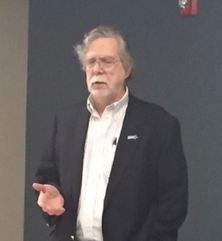 Hugh Brady is the Executive Director of the Housing Task Force, and a major part of his advocacy work is rooted in NAMI, the National Alliance on Mental Illness. He is on the board for the NAMI Northwest Suburbs of Chicago chapter and chair of the legislative committee of NAMI Illinois. Hugh describes his and the Task Force’s work as being the catalyst to make affordable housing happen. Therefore, they do not own or operate buildings, but connect developers with community members and stakeholders to create permanent supportive housing in various communities. |
|
© COPYRIGHT 2018. ALL RIGHTS RESERVED.
|




